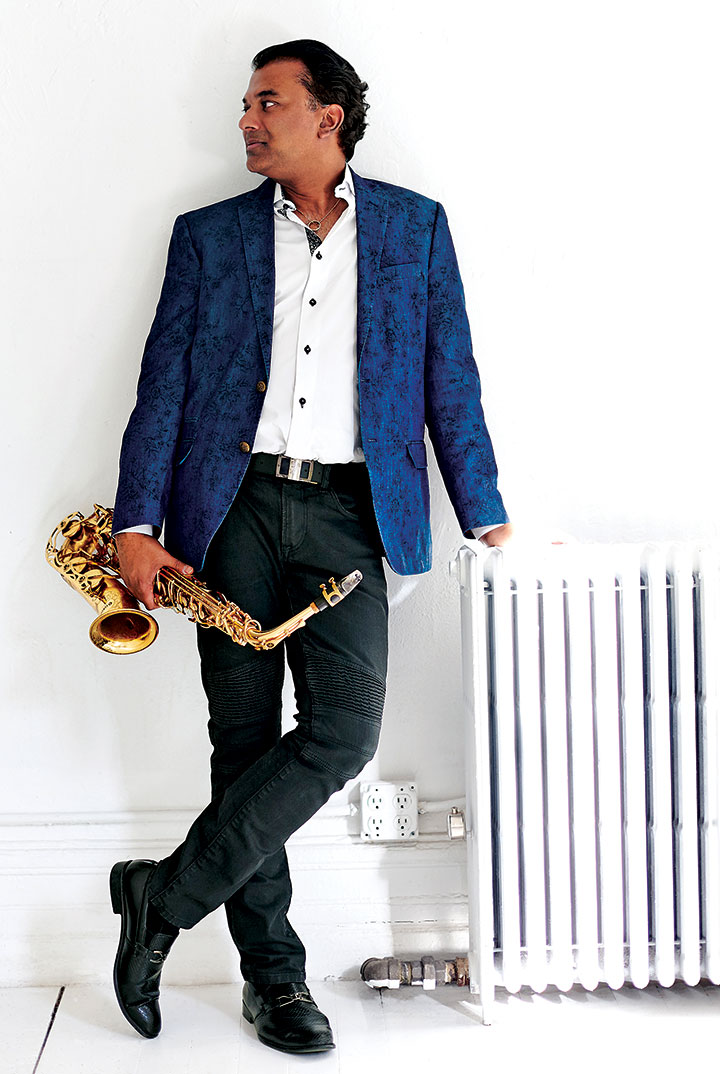Music: Jazz, with a South Indian Twist
Growing up in Boulder, Colo., Rudresh Mahanthappa decided to try jazz after talking to his older brother. “He played the clarinet in the orchestra, and he told me the guys in the jazz band looked like they were having more fun,” Mahanthappa recalls.
The fun hasn’t stopped for Mahanthappa, an accomplished saxophonist and composer who performs worldwide and has recorded more than a dozen albums. He was named Alto Saxophonist of the Year by DownBeat magazine in six of the last seven years. In 2016, he became Princeton’s director of jazz.
Mahanthappa’s music is influenced by South Indian classical music, a reflection of his experience as a second-generation Indian American. As an undergraduate he received a gag gift, a CD called Saxophone Indian Style. That album, as well as a trip to India he took while attending the Berklee College of Music, inspired his first record, Yatra, which means “spiritual journey.” “I was trying not to imitate what I heard, but to take the essence of it and graft that onto a jazz scenario,” he says.
Exploring the music of his ancestry was “something that I felt like I had to discover on my own terms,” Mahanthappa told NPR’s Terry Gross in 2009. “There was no template for an Indian American jazz musician at that time. ... I came into the music at the same time I was coming into understanding that I do have a hybrid background — that I don’t feel entirely Indian, that I don’t feel entirely American.”
He explored his bicultural identity on the 2004 album Mother Tongue, which includes Indian Americans responding, melodically, in seven languages of India to the oft-posed questions “Do you speak Indian?” and “Do you speak Hindu?” On his most recent album, Agrima, Mahanthappa performed with his trio, the Indo-Pak Coalition, playing “with the puckish, cheeky tone of Charlie Parker, negotiating unusual Indian scales and modes with a bebop swagger,” according to The Guardian newspaper.
At Princeton, Mahanthappa can often be found playing along with students while they rehearse for one of the University’s jazz ensembles. “I’m not just a talking head — I’m there with a saxophone in my hand,” he says. “It bridges that gap between education and the real world.” He is teaching a new class, “Advanced Improvisation,” and has brought back a course in jazz history.
He also has beefed up visits by professional jazz musicians, inviting them for several days for extended contact with students. Guests this academic year include octogenarian Archie Shepp, a legendary saxophonist; and newcomer Gerald Clayton, a pianist and composer. Visiting artists, says Mahanthappa, allow students “to see jazz as alive and active, and think about the power of this music.”












No responses yet